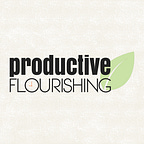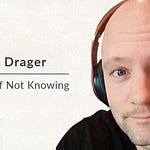Ash Beckham is today’s guest on the show. She frequently speaks on empathy, respect, and the power of having real conversations. Her two TedX talks have over 10 million views on YouTube. She joins Charlie to talk about how we can master real, and sometimes hard, conversations in an age of combativeness. Hint: It’s not about making others adopt your perspective.
[3:00] - In her TedX talk “Coming Out of Your Own Closet,” Ash talks about coming to terms with her sexual identity and gender fluidity. She says she experiences “phases of militant lesbian intensity.” For many people, when they come to terms with their identity, it’s an introspective version at first, then they decide how they want that to exist in the world. Once Ash figured out how she felt most comfortable in her identity, there was a need to defend her struggle to be comfortable with herself. Her “new normal” became her constantly being on guard to defend herself, and conversations became combative.
[6:15] - People in marginalized groups are often always thinking about whether they’re in a safe environment. Sometimes we focus on the people who may not accept us, and overlook the instances where people don’t care or are open and ready to accept. When we engage in conversation, we have to think about whether it’s going to be a conversation, or a monologue. We have to be in control of our responses when we perceive we’re being judged.
[11:15] - Many of us have been involved in conversation where someone is hurt by the words. We may forget that in some contexts, we are in fact the marginalizing or oppressing person, and we’re quick to get defensive because we wouldn’t intentionally do that. Just because you are marginalized doesn’t mean you’re immune to oppressing other marginalized people. Even if we think we can relate to someone, we have to keep our situations in perspective when we converse with people.
[14:50] - While we can emotionally understand what it’s like to be someone else, it’s important to remember that we all have our own lived experiences, and we can never fully imagine someone else’s circumstances until we’ve experienced them ourselves. It is important when building relationships with people who aren’t like you, to build trust where you can share the stories that will allow you to really understand what their situation is like. This open dialogue allows people to become advocates or allies for marginalized groups with some credibility. Standing with someone is maybe more important than standing up for someone.
[17:15] - Identity fluidity is how a person self-identifies. Several identities (race, sexual identity, etc) transition into intersectionality. We are comprised of all of our identities and that’s how we present ourselves in the world. We can’t necessarily separate the identities from each other.
[21:05] - This intersectionality can be influenced by the context of our situation. This concept is easily relatable because we all operate differently in different contexts. We may downplay parts of our identity depending on the people we’re with.
[23:00] - There is a lot of primed combativeness in the world today. The challenge is finding compassion in all this combativeness. Social media has given us a way to find people who are like us, but change isn’t about surrounding ourselves with people who are just like us. The way to create change is by surrounding ourselves with people who aren’t like us and creating structured relationships so we know how to interact, relate and connect with people in a real way.
[26:50] - When we start having conversations based on what people need and want, we can start to find a middle ground. It’s easy to surround ourselves with people who think like us, but if we only do that, we become more polarized. The real change is going to come from interacting with people who don’t think the same as us and finding a middle ground with them.
[29:00] - With the many polarized opinions in the world today, how do we interact in situations when we’re around people we don’t agree with? With family members, there is shared history. This shared history can help ground conversation in something other than politics, and you can also set rules around a level of respect if the conversation goes a different direction. Rather than focusing on being right or wrong, truly engaging to learn more about another person’s perspective is how we can start having respectful conversations.
[33:15] - Having feeling in conversations can be hard and uncomfortable sometimes. We can practice by effectively engaging with people who have slightly different opinions than us, and create a safe space where you can practice listening without judgement. Once you’re able to listen without judgement, you can respectfully engage in conversation with people who have vastly different beliefs than you.
[37:30] - We engage with other people to broaden our perspective of what it means to identify as a different race, religion, political view, etc. If we’re only listening and engaging with people who think just like us, we’re not truly respecting diversity. Ash shares a specific example of using the word ‘gay’ and how by engaging in respectful conversation, she is able to help others understand and appreciate how using that word in a negative connotation is hurtful not only to her, but to everyone. The breadth of the change becomes much larger.
[41:00] - We get caught up in the mentality of being politically correct and saying the right thing, that we shut down from engaging in conversation altogether. That inhibits progress for allies to learn the best ways to support marginalized people and be educators for other people, or just educating other people about your thoughts and beliefs. Some of the most challenging conversations are those with people who want to engage but don’t know how, or people who are scared to engage or have been discouraged from engaging.
[44:55] - Three steps people can take to start having hard conversations: 1. The first step is to practice. Practice in safe spaces. 2. Accountability - find someone who wants to go on the journey with you and hold you accountable to starting the more challenging conversations. 3. Find one news source that is different than what you usually listen to and read an article a day from somebody who thinks differently than you.
[46:55] - Ash’s challenge for listeners is to have one hard conversation before the next time you listen to the Productive Flourishing podcast.
Mentioned in This Episode:
TEDx Talk: Coming Out of Your Closet












